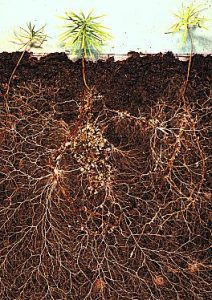 The Yogabliss, Two Rivers/RiverTree Yoga on-line Moving into Meditation classes met this morning. We used qualities of earth to explore qualities of mind. The slow steadiness of grounding helps to bring our heart’s wisdom to what we are attending. Earth’s regenerative capacity metabolizes what has died and nourishes what is being born. We too can integrate our experience in ways that help us to include ourselves and future generations in our circle of caring.
The Yogabliss, Two Rivers/RiverTree Yoga on-line Moving into Meditation classes met this morning. We used qualities of earth to explore qualities of mind. The slow steadiness of grounding helps to bring our heart’s wisdom to what we are attending. Earth’s regenerative capacity metabolizes what has died and nourishes what is being born. We too can integrate our experience in ways that help us to include ourselves and future generations in our circle of caring.
We contemplated Pablo Neruda’s poem Keeping Quiet. The poem, written in the 1950s, speaks to our time. He imagines the healing a Great Pause could bring. The Earth gets a chance to regenerate, the skies clear and we can hear the birds sing.
We drew inspiration from Jay Griffiths’ brilliant essay, Dwelling on Earth. She takes us on a journey through living Soil by highlighting its inhabitants and their role in the circle of life. She takes us back in time describing Darwin’s last work centered on the “mindedness” of earth worms. You can read or listen to Jay read her work and learn about Water Bears aka Moss Piglets aka Slow Steppers!
Vietnamese monk and beloved meditation master Thich Nhat Hanh reminded us of the reverence we embody in mindful walking.
We reflected on Theravadan monk and teacher Ajahn Sucitto’s essay Mindfulness Its Friends and Relatives. He explains how, like fingers and palm, attention and loving awareness come together in mindfulness. We investigate experience and let it rest in our “heart/mind.” We inquire: “How am I with this?”
Relaxed Reflection
We are here today within the Great Pause to settle into a deeper pause, an intimate pause. In the Great Pause we’ve slowed the race to get somewhere, acquire more things, be bigger or better. In our intimate quiet pause we become aware of the inner emptiness that propels us onward. In his poem, Keep Quiet, Chilean poet Pablo Neruda seems to describe our time:
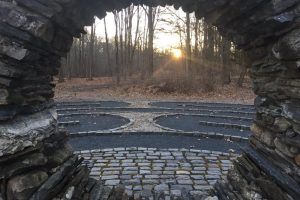 …If we were not so single-minded
…If we were not so single-minded
about keeping our lives moving,
and for once could do nothing,
perhaps a huge silence
might interrupt this sadness
of never understanding ourselves
and of threatening ourselves with death.
Right now in our small silence we give ourselves over to understanding . . . experiencing Body as Body. We’re feeling Body right now . . . beyond beliefs and ideas . . . beyond image and appearance. . . . What are you hearing? What are you feeling on your skin? How do your feet feel? Your hands? Can you drop into a felt sense of Body? Body feeling, hearing, seeing, smelling, breathing, and vibrating with life.
In the Great Pause so many of our engines stopped that polluted skies began to clear and we could hear birdsong. Below clearing skies illness ravaged the world and so many lost the security of home and livelihood. Crisis upon crisis uncovered the deeper sickness of inequality and injustice. We continue to threaten ourselves with death. And yet we, like Neruda, hold out hope:
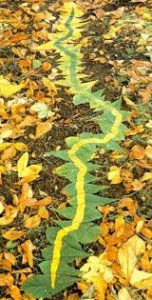 Perhaps the earth can teach us
Perhaps the earth can teach us
as when everything seems dead
and later proves to be alive.
Earth lives deep below the surface where fires rage. Earth lives in our very bones . . . we feel this in our quiet small pause . . . letting our attention move from head . . . neck . . . shoulders . . . flow like water into upper arm . . . elbows . . . lower arms . . . wrists and hands . . . Feeling chest gently expand with in-breath . . . release with our-breath . . . Moving into belly, flow into the hips. Feeling lower Body settled on earth. . . . Letting Body draw you into relationship with Earth. . . . being held by Earth . . . We can relax . . . perhaps surrender our restlessness . . .
Here, now we can reflect: What does Earth have to teach us? What possibilities lie in deeper stillness? What understandings live under the surface? Can we set aside beliefs and diffuse compulsions? Can we create a caring and curious space in which to think differently? Again Neruda:
Now we will count to twelve
and we will all keep still
for once on the face of the earth,
let’s not speak in any language;
let’s stop for a second,
and not move our arms so much.
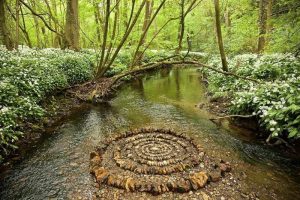 It would be an exotic moment
It would be an exotic moment
without rush, without engines;
we would all be together
in a sudden strangeness.
Fishermen in the cold sea
would not harm whales
and the man gathering salt
would look at his hurt hands.
Those who prepare green wars,
wars with gas, wars with fire,
victories with no survivors,
would put on clean clothes
and walk about with their brothers
in the shade, doing nothing.
Let’s rest our Bodies on Earth’s Body. We can imagine ourselves nestling down onto her outermost skin – the Soil. Her Soil supports us. Her Soil sustains us. We walk upon her back cushioned by her Soil. Her Soil that is teeming with life. Seeds of possibility gestating. We are fortunate beyond measure to lay our bodies down on Earth’s Body. We can enter the small pause and be held while we dream, listen, grieve and at times feel peace.
Writer Jay Griffiths observes:
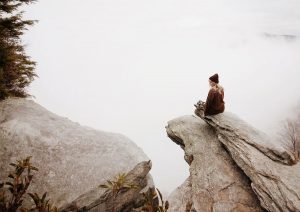 Soil is the dark forever where we go after death, earth to earth and ashes to ashes: where our existence ends. It is also where we come from, creatures of earth and fed by it, our brief lives poised between two long eternities of soil.
Soil is the dark forever where we go after death, earth to earth and ashes to ashes: where our existence ends. It is also where we come from, creatures of earth and fed by it, our brief lives poised between two long eternities of soil.
“Our brief lives [are] poised between two long eternities of Soil.” We are here so briefly and so much of our time is lost in distraction. How much of our time is spent in an intentional, purposeful way? Our hearts wisdom is revealed in the slow practice of mindfulness. Meditation teacher and writer Ajahn Sucitto encourages us to make our way through patience and persistence. He compares mindfulness practice to our hand:
. . . attention is like the fingers, and citta or awareness is like the palm. Fingers can probe, twiddle and touch, but are unable to collect anything. The palm can’t probe and inquire, but it receives, collects and fully feels what the fingers place in it. . . . Deep attention . . . . note[s]. . .: Restlessness, anxiety . . . Irritation, friendliness . . . Then mindfulness bears that mind-state in mind, lets it sit in awareness. . . . Mindfulness has to be established and re-established through patience and a lot of kind encouragement so that the fingers of attention don’t keep grabbing hot coal.
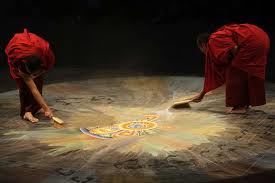 Ever so slowly, in Earth time, we come to know our minds. Gradually we come to know and appreciate being. We become aware of our inter-relatedness and inter-dependence. Beneath our feet there are: microorganisms . . . fungus and mycelium . . . worms . . . bacteria creating “life’s fertility and regeneration. . . [breaking] . . . down leaf litter . . . into humus, cycling food from deadness to make thriving life.” What magical life forms all working in the deepest slowness . . . timeless intimacy.
Ever so slowly, in Earth time, we come to know our minds. Gradually we come to know and appreciate being. We become aware of our inter-relatedness and inter-dependence. Beneath our feet there are: microorganisms . . . fungus and mycelium . . . worms . . . bacteria creating “life’s fertility and regeneration. . . [breaking] . . . down leaf litter . . . into humus, cycling food from deadness to make thriving life.” What magical life forms all working in the deepest slowness . . . timeless intimacy.
In her wondrous article, Dwelling on Earth, writer Jay Griffiths recounts:
In Darwin’s last work . . . he sought to demonstrate that worms have mind. Worms make burrows and plug the openings with leaves, and this activity, he saw, was neither random nor wholly instinctive; and in that space between, a form of mindedness can be inferred. . . . he witnessed the way they made decisions about how to best drag a leaf by feeling it carefully and judging the right maneuver.
. . . .The quiet ones, quietly making life possible, the ones who shun the spotlights, the unstarry ones on whose lovely liquid glistening—true brilliance—the world turns.
Imagine worms having mindedness. Imagine worms making our lives possible. Jay writes:
It takes a certain cast of mind to find mind under the soles of our feet; to be receptive to the possibility of intelligence where it is least expected, to be willing to attend so closely, to listen so deeply earthwards: it takes a kneeling humility, and in that kneeling posture, the capacity to be awed by an unexpected elder. We cultivate this cast of mind in our practice. Doing walking meditation – ever so gently placing one foot . . . and then another . . . we walk with reverence. Reverence for the living presence of all who make our lives possible. Vietnamese monk and cherished meditation teacher writes:
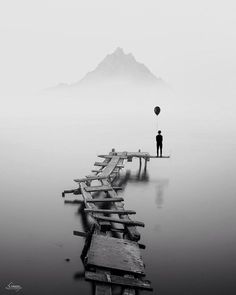 The earth is sacred and we touch her with each step. We should be very respectful, because we are walking on our mother. If we walk like that, then every step will be grounding, every step will be nourishing
The earth is sacred and we touch her with each step. We should be very respectful, because we are walking on our mother. If we walk like that, then every step will be grounding, every step will be nourishing
Jay Griffiths says. . . we tread softly for we tread on something subtle, ancient, and slow.
Darwin wrote that “When we behold a wide, turf-covered expanse, we should remember that its smoothness, on which so much of its beauty depends, is mainly due to all the inequalities having been slowly leveled by worms.” Jay Griffiths writes:
Leveling inequalities conjures a social and political rhyme, suggesting the level earth as a level playing field, and the leveling of unequal lives. The spirit of leveling holds humility close to its heart; it has social grace and ancient wisdom. Worms, the original levelers, are creators of worlds. And we humans are destroyers of the only world we have.
 Patiently, persistently fingers of attention touching expressions of life . . . held in the palm of loving awareness we come to know what is true and what matters most. Ajahn Sucitto teaches that
Patiently, persistently fingers of attention touching expressions of life . . . held in the palm of loving awareness we come to know what is true and what matters most. Ajahn Sucitto teaches that
… awareness must be extended beyond me and time and incident into the domain of love and integrity and self-surrender that is the source of our lived-in truth. We are fragile, we are resilient; we are separated, we’re connected. In the language of the heart these are not contradictions. . . .
